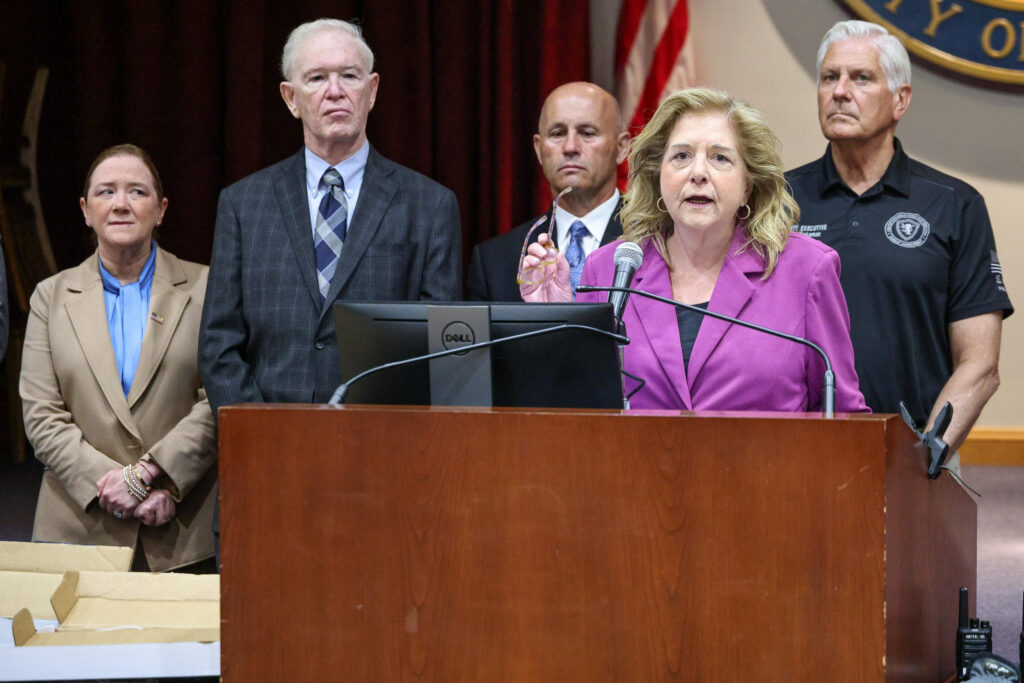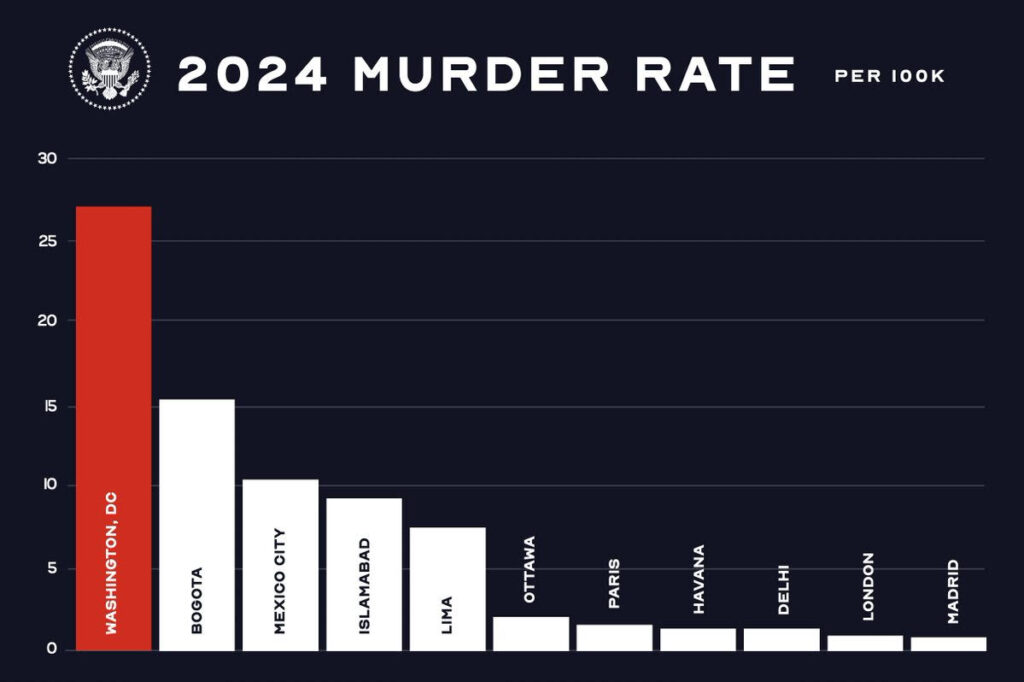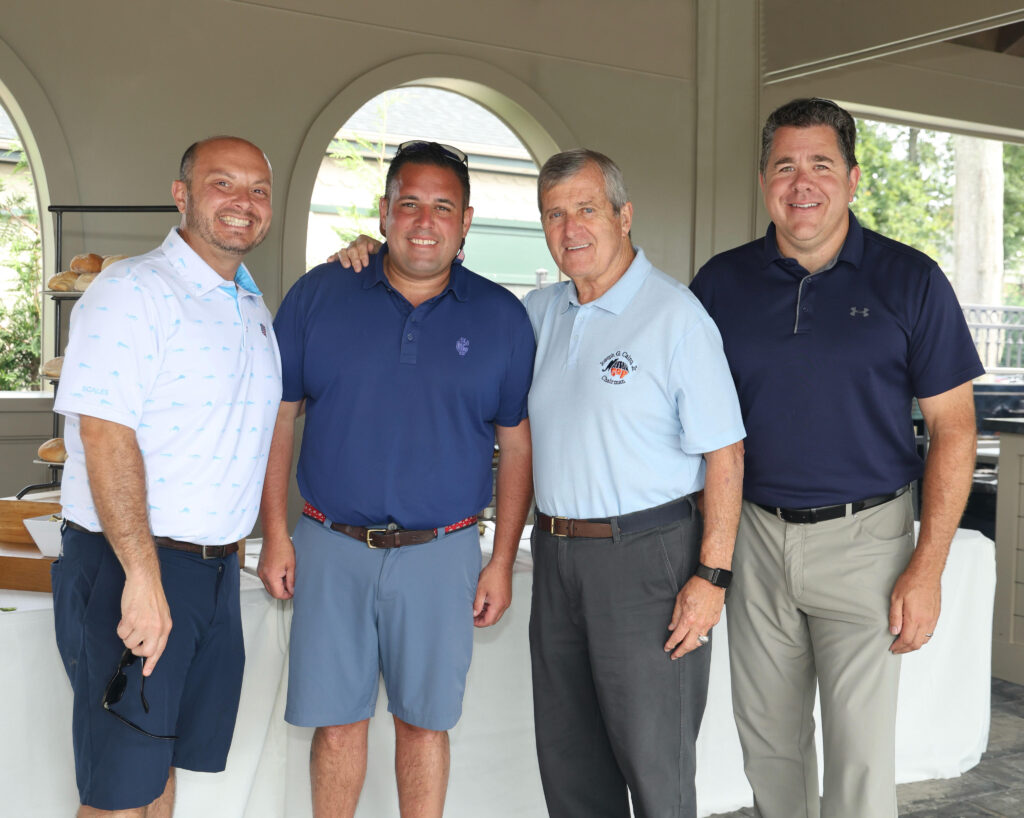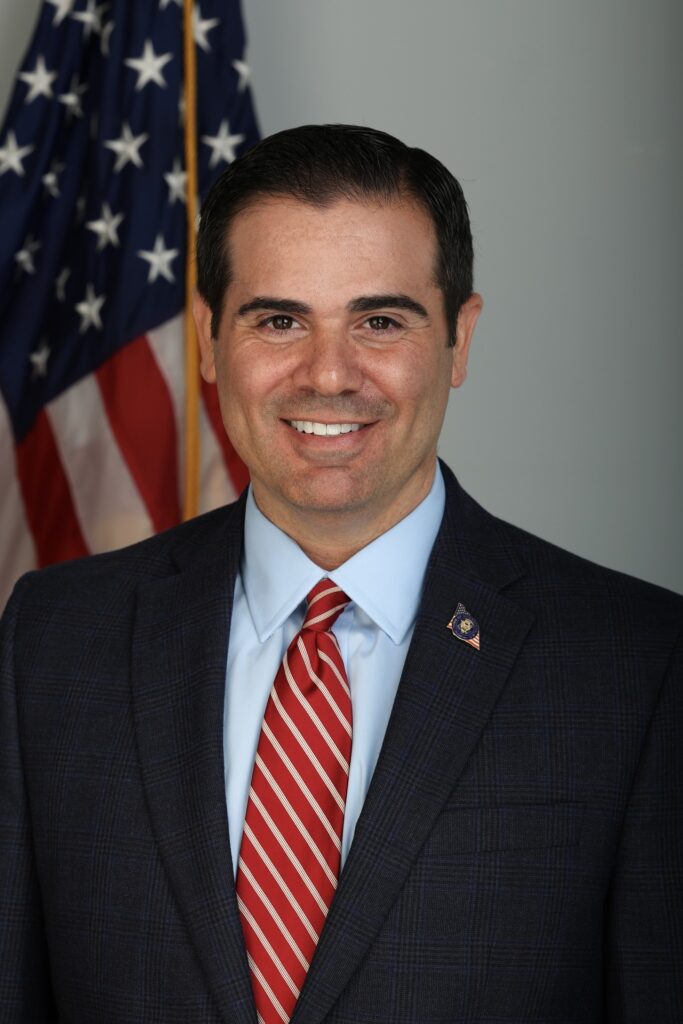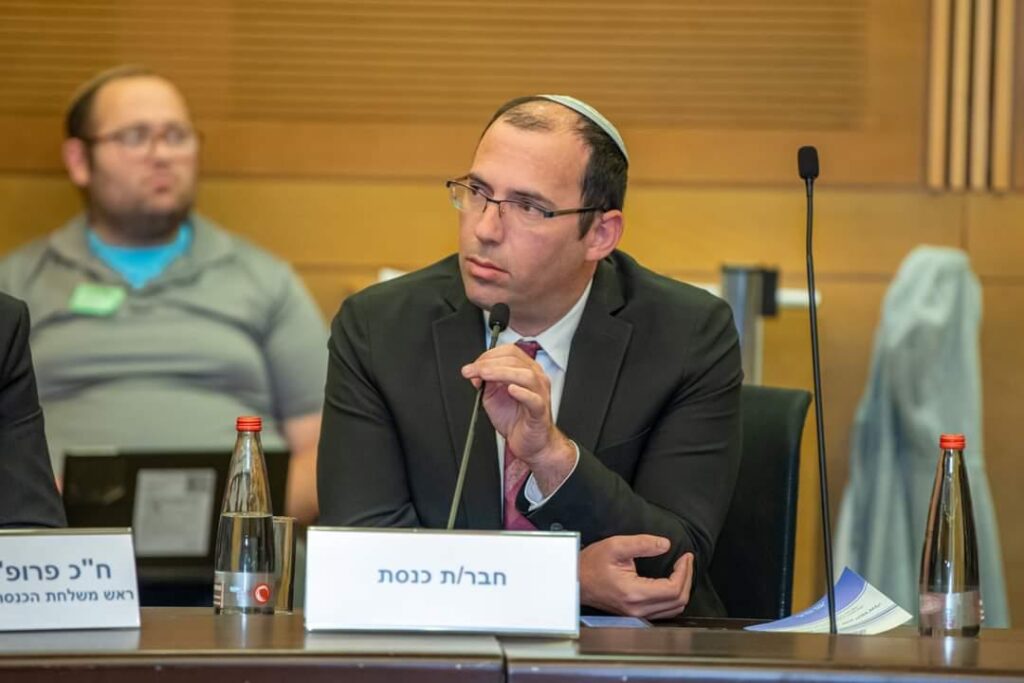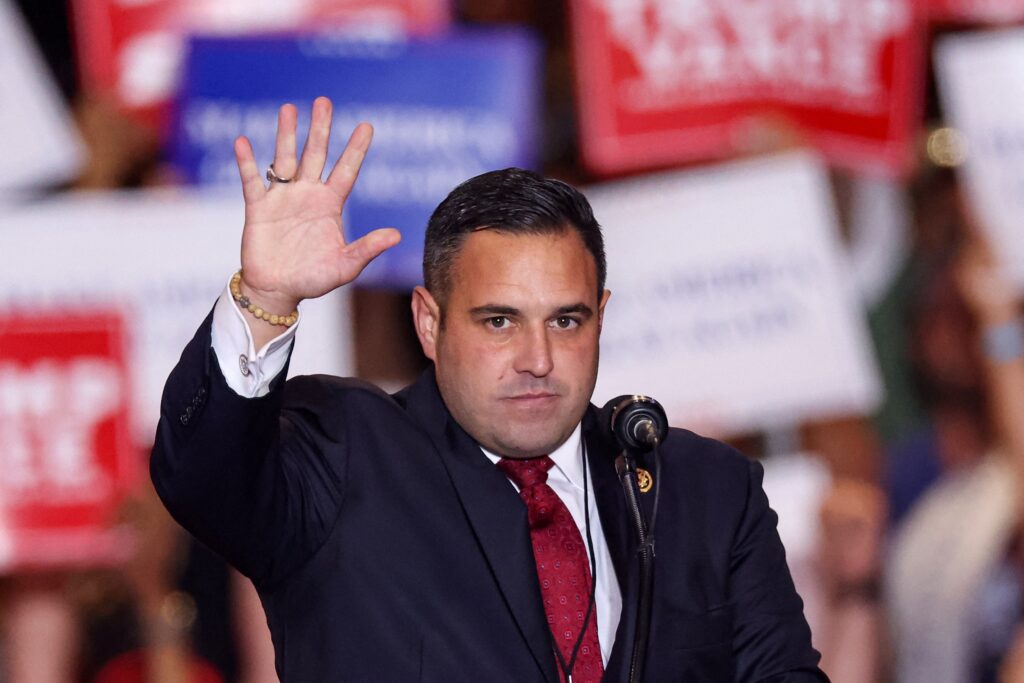Nassau DA Anne Donnelly’s Playbook: Relentless On Gangs And Drugs, United With Police, Uncompromising On Hate
Nassau DA Anne Donnelly’s Playbook: Relentless On Gangs And Drugs, United With Police, Uncompromising On Hate
If you want to know why Nassau County continues to set the standard for public safety, start with District Attorney Anne Donnelly. After more than three decades in the trenches as a prosecutor, Donnelly governs with a simple rule: results beat rhetoric. That approach shows up everywhere, from gang takedowns to drug prosecutions, to day-to-day work with local police departments, as well as a targeted campaign to confront antisemitism and all forms of hate.
And the results are unmistakable.
In August 2025, Donnelly announced indictments against five members of MS-13’s Hempstead Locos Salvatruchas clique of MS-13 for conspiracy, attempted murder, and related charges stemming from two brutal attacks, one at a Hempstead soccer field and another outside a Uniondale laundromat, where victims were slashed with knives and a machete. The charges reach straight to the core of MS-13’s violence strategy: pack attacks, edged weapons, and terror as a recruiting tool. Donnelly’s answer was swift and surgical: build the case, move the grand jury, and put the defendants on a path to real prison time.
That operation syncs with a broader, countywide surge on gang crime. In a four-day sweep during the same month, Nassau authorities arrested 42 individuals, including 25 alleged gang members—mostly MS-13—tied to a string of violence. The arrests covered attempted murder, assault, robbery, and more, and they came after intelligence-driven work across agencies. The message was as clear as the numbers: if gangs choose Nassau County, Nassau County will choose accountability.
Donnelly’s office isn’t just focused on headline-grabbing gangs; it’s also hammering drug trafficking that fuels violence and overdoses. This year, her prosecutors secured sentencing in a million-dollar cocaine and fentanyl scheme that leveraged a corrupt postal network, another case that shows the DA’s willingness to go wherever the evidence leads, even when the logistics cross agency lines and jurisdictions. Fentanyl is the most lethal street drug in America and cutting off supply chains is a win for public health and public safety.
The DA’s partnerships tell the rest of the story. Donnelly’s office moves in lockstep with the Nassau County Police Department (NCPD), working investigations from the ground up and standing side-by-side at key takedowns. When her team and Commissioner Patrick Ryder stood together to charge a Dix Hills suspect who allegedly tried to hire a hitman to kidnap and murder a rival, it underscored how these cases are built: detectives and prosecutors collaborating early, sharing intelligence, anticipating defenses, and protecting witnesses. That’s how you neutralize threats before they multiply.
Likewise, Donnelly, County Executive Bruce Blakeman, and the police ecosystem on Long Island continually adapt to protect schools and houses of worship. As the new school year approached, Nassau rolled out a 40-member strategic response team to harden K-12 and private school sites with proactive patrols, rapid solo-officer deployment, and direct alert technology that bypasses 911. While the deployment is an NCPD initiative, it lives within the same culture of prevention that Donnelly champions—integrating police presence with real-time intelligence and relentless follow-through in the courts.
And the follow-through in the courts shows case after case: murderers receive life-without-parole, violent offenders receive long sentences, and cases that would not result in convictions in other communities, leaving communities exposed (including homicides and violent felonies) often result in convictions. These courtroom wins matter because deterrence doesn’t work unless violators see that Nassau means business.
It’s not only violent crime where coordination pays off. Even “quality-of-life” problems, such as DWIs that turn deadly, repeat reckless drivers, frauds that victimize seniors, get organized attention. Donnelly’s office uses asset-forfeiture dollars to fund targeted summer patrols with local departments like Long Beach PD, creating more DWI enforcement hours during the most dangerous months on Nassau’s roads. It’s not glamorous, but it saves lives, and it’s exactly the kind of practical collaboration residents expect.
Donnelly also recognized early that Nassau County needed a one-two punch against hate: smart enforcement and credible education. On the enforcement side, her prosecutors secured a felony hate-crime plea from a defendant who defaced an East Meadow synagogue and nearby properties with antisemitic graffiti, coupling accountability with mandated bias-prevention training, community service, and a required visit to the Holocaust Memorial and Tolerance Center (HMTC). The outcome balanced punishment and education, the kind of resolution that condemns the act while targeting the ignorance that fuels it.
On the prevention side, the DA’s office partnered directly with HMTC to launch a countywide campaign against antisemitism—public-service announcements, school-facing resources, and community engagement designed to reach students, parents, and bystanders before hateful ideologies calcify into criminal behavior. It’s proactive, it’s local, and it’s rooted in the experience of Nassau’s Jewish community.
That dual approach—prosecute hate crimes without hesitation and undercut them with education—tracks with Donnelly’s broader philosophy: you protect people by taking violent actors off the street and shrinking the pipeline that creates them. It’s why the county keeps tightening school security protocols and deepening ties between administrators, SROs, and prosecutors. You don’t wait for tragedy; you build muscle memory for safety.
{Why the Model Works: Early Integration, Real-World Priorities
Talk to cops and ADAs who’ve worked alongside Donnelly, and you hear the same themes: early case integration, relentless prep, and evidence-first strategy. Her background in Organized Crime and Rackets taught her that large-scale criminal networks—whether gangs, drug traffickers, or money-laundering crews—don’t collapse by accident; they collapse because prosecutors and detectives align early and pressure the right points of the organization. That mindset explains everything from the MS-13 cases to white-collar prosecutions and public-corruption matters.
It also explains her comfort working with federal partners. When a Florida suspect allegedly hijacked physicians’ e-prescribing privileges to push thousands of controlled-substance scripts, Donnelly’s office didn’t hesitate to stand with the DEA and NCPD to shut it down. In the fentanyl era, proactive medical-fraud enforcement arguably prevents more overdoses than any single street bust—and it takes the kind of interagency coordination Donnelly has practiced for decades.
Donnelly is blunt about outcomes: residents deserve to live in America’s safest county—and they expect it to stay that way. Nassau has repeatedly ranked at or near the top for safety, and Donnelly explicitly credits two groups every time those rankings are released: her prosecutors and the county’s law-enforcement partners. The public sees visible patrols and quick response; the courtroom results and sentencing numbers that make patrol work matter are the other half of the equation.
This is also why Donnelly, County Executive Blakeman, and Commissioner Ryder push back when Albany floats policies that would disable basic policing tools, such as proposals to curb routine traffic stops. To Donnelly, it isn’t theoretical: Long Island’s history shows that “minor” traffic stops have cracked major cases, including serial killers. You can’t keep neighborhoods safe if you kneecap the ordinary enforcement that uncovers extraordinary danger.
Gangs exploit immigrants and at-risk youth. Drug organizations profit from addiction and chaos. Hateful ideologies prey on isolation and ignorance. They are different threats that share a common strategy: divide communities, intimidate good people, and dare the system to respond. Donnelly’s approach denies them all three. The system does respond—and quickly. And with partners who share the same uncompromising standard.
Consider the chain: intelligence on an MS-13 clique leads to arrests; arrests lead to grand-jury indictments; indictments lead to detention and leverage for cooperators; cooperators lead to more intelligence; and the circle keeps tightening. Side by side, drug cases keep hammering distribution networks—whether it’s a USPS-linked pipeline moving cocaine and fentanyl or a digital script-mill pumping addictive pills into Long Island. Meanwhile, the hate-crimes team works with synagogues, schools, and community centers to deter attacks and—when the line is crossed—to prosecute with clarity and speed.
Ask victims’ families what they want, and you hear the same: dignity, communication, and justice that lasts. Donnelly’s office places victim advocacy at the center of its work—because it’s the right thing to do and because it makes the system stronger. Witnesses show up. Communities cooperate. Juries believe what they hear.
Ask cops what they want, and they’ll tell you: prosecutors who own the case. Donnelly’s ADAs aren’t case-managers; they’re trial lawyers who put in the hours with the detectives who built the file. This shared ownership is why the county keeps stacking convictions on murder, robbery, and gun cases.
Finally, ask residents what they want, and they’ll say it plainly: a DA who keeps Nassau safe without losing Nassau’s soul. That’s the throughline of Donnelly’s tenure. It’s why she directs forfeiture dollars back into community protection. It’s why she’ll stand at a press conference with the police when a gang sweep lands dozens of defendants, and then stand at a podium with HMTC when the task is to cool the temperature and inoculate kids against hate. Both are public safety. Both are her job.
Public safety isn’t a press release; it’s a covenant. Anne Donnelly treats it that way. When gangs strike, she indicts them. When drug networks shift, she adapts and partners. When hate surfaces, she prosecutes and educates. When schools and synagogues need protection, she mobilizes with police leadership, tightening protocols before a crisis ever hits. It’s the opposite of performative politics; it’s a prosecutor’s mindset applied at county scale.
That’s why Nassau keeps winning the battles that matter. The county is safer because the DA’s office is present in every room that counts—precincts, courtrooms, classrooms, and community halls. And it’s safer because the person at the helm knows that justice is a team sport: police, prosecutors, parents, pastors, principals, and—above all—victims who deserve to be seen and served.
In a moment when too many places experiment with excuses, Anne Donnelly keeps choosing results. That is what leadership looks like in a county that intends to stay the safest in America—one gang case, one drug network, one hate crime, one school at a time.
Congressman Anthony D’Esposito was nominated by President Donald Trump to serve as Inspector General of the Department of Labor. Previously, he served in Congress, representing New York’s 4th Congressional District. Anthony served as a Councilman in the Town of Hempstead after retiring from the NYPD as a highly decorated Detective. He also served as Chief of the Island Park Fire Department and helped lead the all-volunteer organization’s response to Super-Storm Sandy. The Congressman appears frequently on Fox News, Newsmax, ABC National News, and 77 WABC Sid and Friends in the Morning. To contact, email [email protected].





